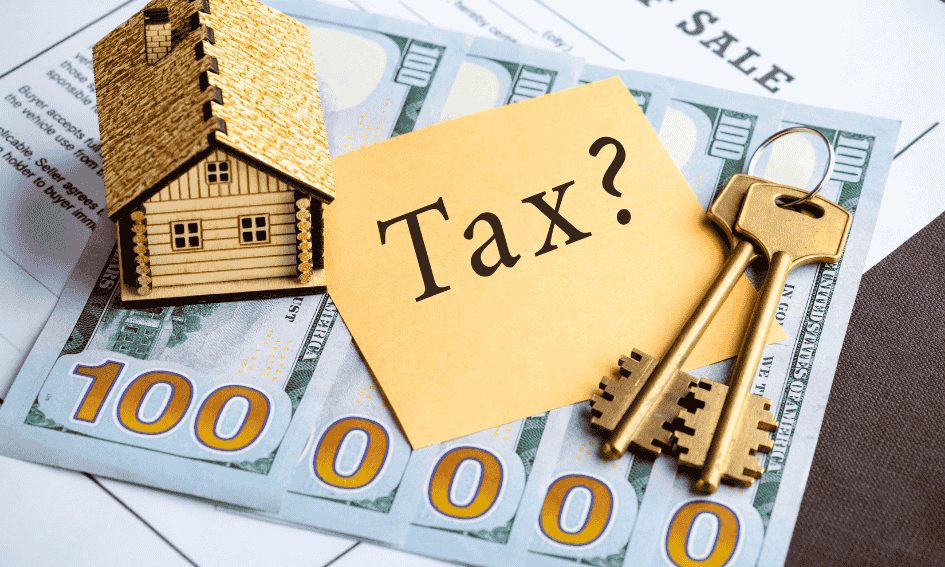Maximizing Your Investment: Understanding Real Estate Taxes for Foreign Buyers in Vietnam
01 Oct, 2025

Maximizing your investment in Vietnam’s property market starts with a clear understanding of real estate taxes. For foreign buyers, taxes are not only a legal obligation but also a crucial factor that directly impacts profitability and long-term stability. Vietnam’s rapid economic growth, especially in Ho Chi Minh City, has made property investment increasingly attractive, yet navigating the tax framework can be challenging without proper guidance. In this guide, VnRenthome provides a comprehensive overview of real estate taxes, helping expats and local investors alike optimize their investment while staying fully compliant with Vietnamese law.
Why Foreign Buyers Must Understand Vietnam’s Real Estate Taxes
For international investors, Vietnam’s real estate market offers strong growth potential, especially in Ho Chi Minh City where demand for housing and rental properties continues to rise. However, the legal framework is highly regulated, and failing to understand tax obligations can lead to unexpected costs, compliance risks, and even penalties.
By gaining clarity on real estate taxes—such as value-added tax, registration fees, and income tax—foreign buyers can ensure transparency in transactions, protect their ownership rights, and maximize long-term returns. In short, understanding taxation is not just about paying the right amount; it is about safeguarding your investment and securing peace of mind.

Key Real Estate Taxes Applied to Foreign Buyers
When purchasing or investing in property in Vietnam, foreign buyers are subject to several taxes and fees regulated under Vietnamese law. Understanding each type of tax is crucial for compliance and for planning an effective investment strategy.
Value-Added Tax (VAT)
A 10% VAT is applied to the sale of newly built residential properties and most construction services. For resale of existing properties, VAT may not apply, but it can influence overall transaction costs.
Registration Fee / Stamp Duty
Upon purchasing a property, buyers must pay a registration fee—commonly 0.5% of the property value—when registering ownership rights.
Corporate Income Tax & Personal Income Tax (for rental income)
If the property is rented out, rental income is subject to PIT (for individuals) or CIT (for companies). For individuals, the typical rate is 5% VAT and 5% PIT applied to gross rental income.
Capital Gains Tax (transfer of property)
When transferring ownership, individuals are required to pay 2% of the transfer value as PIT. This is often referred to as a simplified capital gains tax.
Land Use Right & Land Rental Fees
When transferring ownership, individuals are required to pay 2% of the transfer value as PIT. This is often referred to as a simplified capital gains tax.
Double Taxation Agreements (DTA) and Implications for Expats
Vietnam has signed Double Taxation Agreements (DTAs) with more than 80 countries worldwide, including the United States, the United Kingdom, France, Singapore, and Australia. These agreements are designed to prevent individuals and companies from being taxed twice on the same income in both Vietnam and their home country.
For foreign property buyers, DTAs play a key role in reducing overall tax burdens, especially when rental income or capital gains are involved. If an investor is a tax resident of a DTA partner country, they may be eligible for exemptions or reductions in personal income tax, depending on the specific provisions of the agreement.
Expats are encouraged to confirm their tax residency status and consult professional advisors to leverage DTA benefits effectively, ensuring that they comply with both Vietnamese regulations and their home country’s tax laws.
Tax Compliance and Reporting Requirements
Complying with Vietnam’s tax system is not only a legal obligation but also a safeguard for maintaining property rights. Foreign buyers must prepare the required documents, declare taxes accurately, and meet deadlines to avoid penalties.
- Required Documents: Sales contract, ownership certificate, proof of income (for rental), and tax identification number (TIN).
- Declaration Process: Taxes are declared through the local tax office where the property is located, typically via forms guided by the Ministry of Finance.
- Payment Deadlines: Taxes such as registration fees are usually due at the time of ownership registration, while income and transfer taxes must be declared within 10 days of the transaction.
- Penalties for Non-Compliance: Late filings or underpayment may result in fines, interest charges, or complications in property transfer.
By understanding the process and maintaining transparency, foreign investors can avoid unnecessary legal risks and secure long-term stability in Vietnam’s real estate market.
Practical Tax Planning Strategies for Foreign Investors
Beyond knowing the tax rates, smart planning helps foreign buyers maximize profits and minimize risks in Vietnam’s property market. A few strategies can make a significant difference:
- Choose the Right Ownership Structure: Decide between individual ownership and company ownership. While personal ownership is simpler, a corporate structure may offer tax advantages for larger investments.
- Leverage Double Taxation Agreements: If your home country has a DTA with Vietnam, ensure you claim applicable exemptions or reductions to avoid unnecessary double payments.
- Plan Rental Income Management: Keep detailed records of rental contracts and expenses. Deductible costs such as maintenance, management fees, or repairs can help reduce taxable income.
- Seek Professional Support: Working with tax advisors and legal consultants familiar with Vietnam’s regulations ensures compliance while uncovering optimization opportunities.
Smart tax planning does not mean avoiding taxes—it means using legal tools to secure both profitability and peace of mind.
Case Study: Tax Scenarios for Foreign Buyers in Ho Chi Minh City
To better illustrate how Vietnam’s tax rules apply, let’s look at three common situations faced by foreign investors in Ho Chi Minh City:
- Case 1: Buying an apartment to live in
A foreign professional purchases a new apartment in District 2. The buyer pays 10% VAT on the property price and a 0.5% registration fee to secure ownership rights. - Case 2: Renting out an apartment
An expat investor owns a serviced apartment in Binh Thanh District and leases it to other expats. Rental income is subject to 5% VAT and 5% PIT on gross revenue, declared quarterly at the local tax office. - Case 3: Selling a property after 5 years
A foreign buyer sells a condominium in District 7 at a profit. The seller pays 2% PIT on the transfer price, regardless of actual profit margin. This ensures compliance but can affect net returns if market appreciation is limited.
These examples highlight the importance of understanding how different taxes apply to specific investment purposes. Careful planning and professional advice can help investors maximize outcomes while avoiding unnecessary risks.
Understanding Vietnam’s real estate taxes is not just about compliance—it is about protecting your investment and securing long-term growth. From VAT and registration fees to income and transfer taxes, every obligation plays a role in determining the profitability of your property.
For foreign and local buyers alike, the key to successful investment in Ho Chi Minh City is combining legal awareness with smart tax planning. With the right guidance, taxes become a tool for maximizing returns rather than a burden.
Contact VnRenthome today via Hotline – WhatsApp – Email to receive expert legal and tax support, and let us help you find your next home with confidence.

